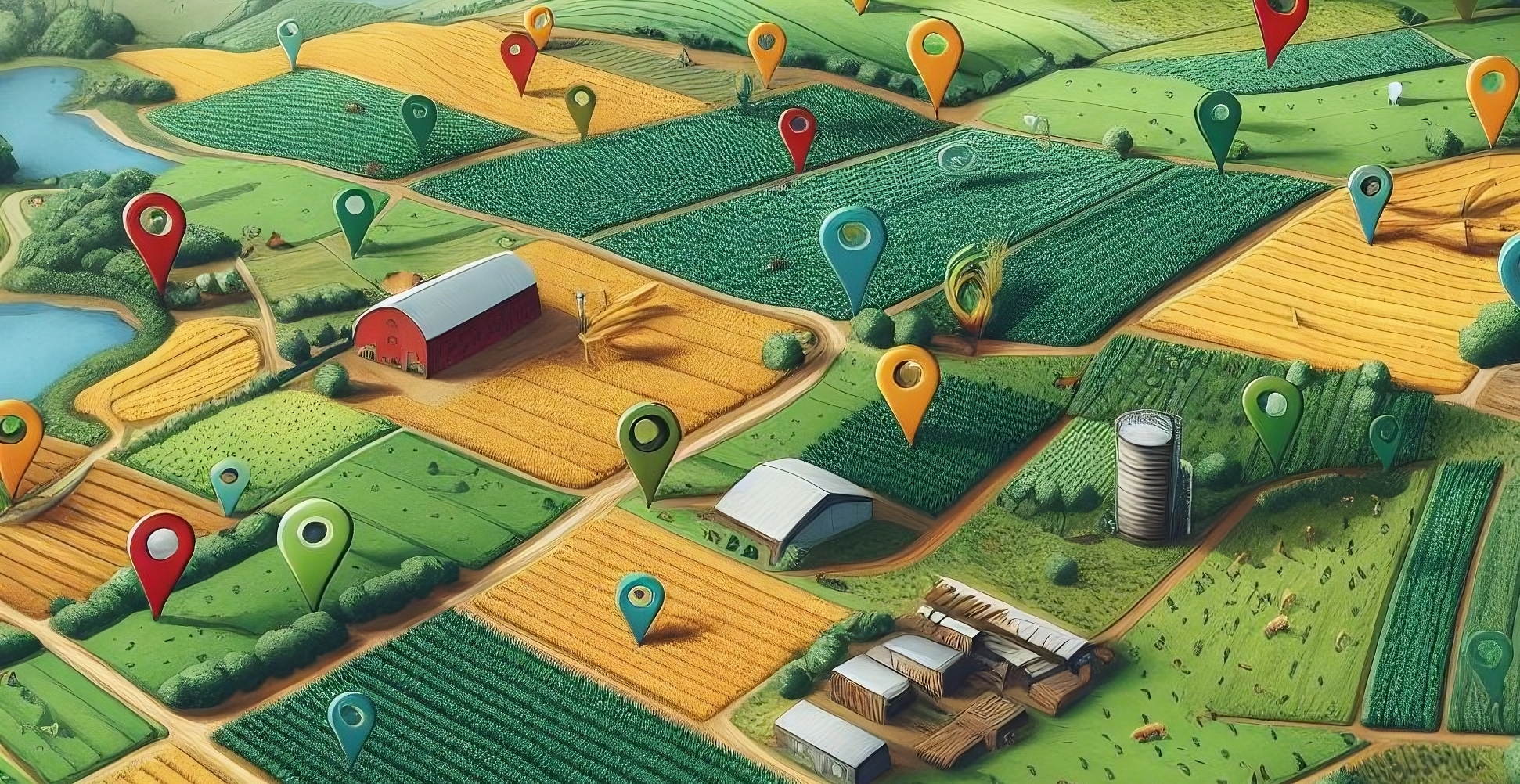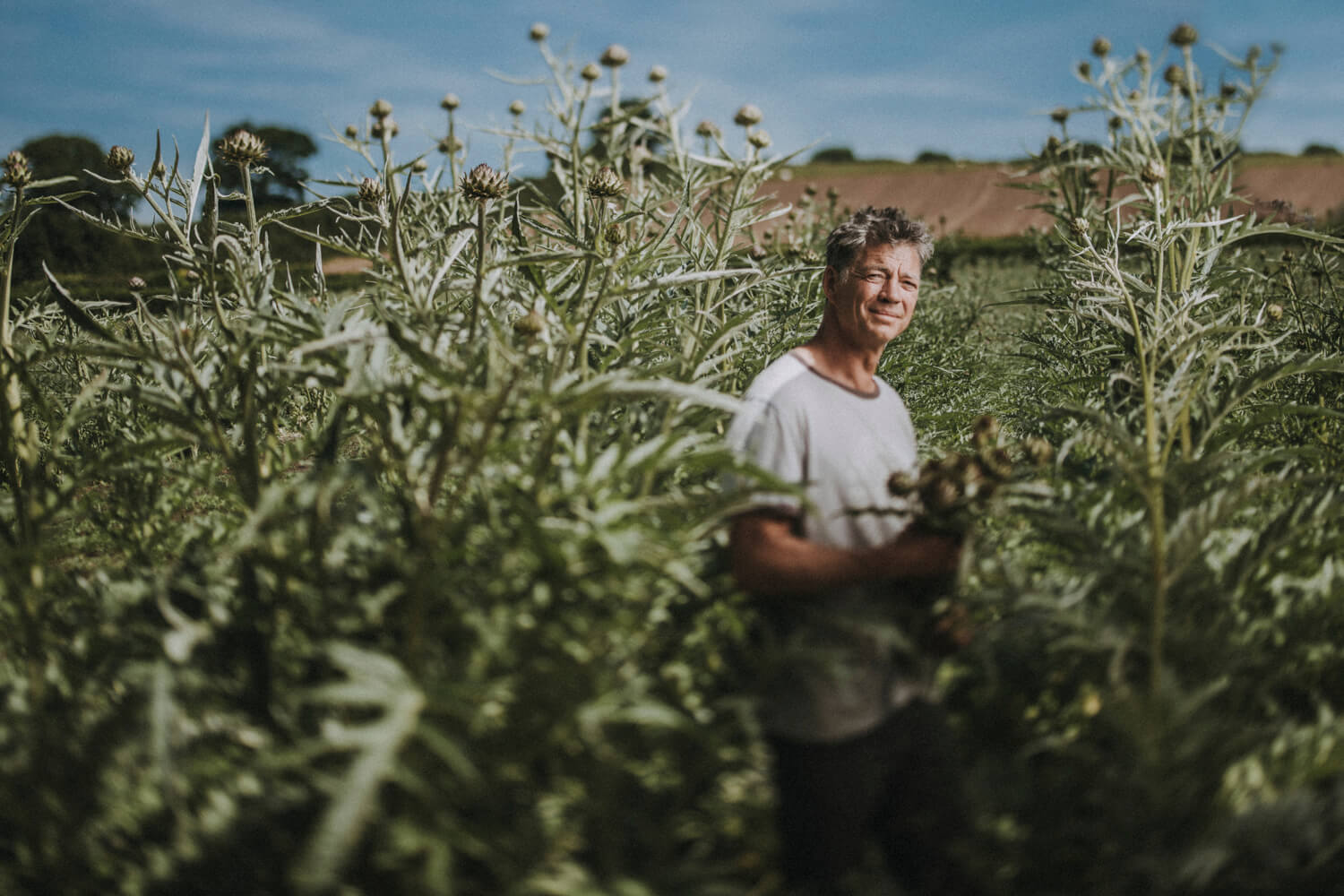Anthony Davison set up BigBarn because he was horrified by how little farmers were paid for their unique skills and long hours of work. BigBarn was formed to put consumers directly in touch with the farmers that produce their food, cutting out the supermarkets and the inefficient, costly and wasteful global food supply chain. Watch the video and give it a like and a share:
Anthony Davison, whose family have been farmers for five generations, set up BigBarn in 2001 because he was horrified by how little farmers were paid for their unique skills and long hours of work. BigBarn was formed to put consumers directly in touch with the farmers that produce their food, cutting out the supermarkets and the inefficient, costly and wasteful global food supply chain.
In the nineteen nineties he and his family were growing onions on their farm in Norfolk, and when they compared the price they were being paid with the price that the supermarket was charging, they realised that for every pound a consumer spends in the supermarket, the farmer gets about 9p.
Their onions were being sold off the farm for £110 per tonne and appearing on the Tesco shelf two days later for the equivalent of £850 per tonne. Anthony realised that both consumers and producers would get a much better deal by trading direct, and that by communicating with their local producers, consumers would be inspired to buy and cook fresh, seasonal healthy food.
There are now around 9,000 suppliers on the online BigBarn map which gets about 5,000 visitors per day. The map is interactive and producers can update their profiles and keep their customers informed about news on the farm.
BigBarn allows small producers who might be struggling with rock-bottom prices, late payments and wasteful rejection by supermarkets of any products that don’t conform to strict size and colour requirements, to sell direct and get a better price. For consumers this means access to cheaper, fresh, seasonal, food. It also reduces food miles, increases food knowledge and awareness as well as increasing agricultural diversity and boosting local rural economies.
The food system is failing consumers by using marketing to increase the perception that price and convenience is more important than animal welfare, sustainable farming and food quality. BigBarn’s mission is get people out the supermarkets and shopping locally. In time we will provide the knowledge on how to build local food supply chains and the customer base to make them sustainable.
Present trends in the UK food industry are anti-social, unethical and dangerous, putting small farms out of business, using poisonous chemicals and fertilisers, cruelly mistreating animals and overusing antibiotics and fossil fuels. BigBarn’s mission is to reverse this trend by reconnecting consumers with their local producers directly, or through local retailers, and to encourage local trade, giving farmers a better deal and consumers fresher, cheaper, accountable food.
We’re trying to engage people to build communities around food. Over the years (particularly over lockdown) we’ve seen that there’s a real need for these communities in order to develop our own food security.
BigBarn is trying to build a more enlightened society that makes better food buying choices.
In 2010 Anthony started a campaign Crop for the Shop which allows people to grow vegetables at home and sell them locally. The farms that have a carrot-flag icon on the BigBarn map are buying veg from local growers, no matter how small the quantities are.
The aim is that the shop down the road gets great produce to sell at a lower price than the supermarket, and best of all, what has been grown in the garden or allotment not only has a local story behind it, but the veg usually tastes better than the commercial crops on supermarket shelves.
In 2011 Anthony started introducing the BigBarn and Crop for the Shop ideas to schools, hoping that if children learn to grow their own vegetables and either eat them themselves or sell them through the Crop for the Shop scheme, they will form lifetime habits of sourcing and cooking locally grown healthy food.
If we can get the next generation knowledgeable and enthused about food and teach them to make the correct buying choices, we’re taking a huge step in the right direction.
They’re our biggest influencers and I believe this can totally revolutionize the food industry. In addition, there are huge benefits to the schools in terms of education for the kids.
My vision for the near future is for every school to have a little food market every Friday and for each school to feature on the BigBarn map. Others can start bringing their produce and this creates a community around food. If someone is great at baking bread, for example, they can teach others, and eventually, this knowledge sharing leads to a real sense of community.
BigBarn has teamed up with Slow Food UK to help more people switch from a fast food, supermarket lifestyle to a more sustainable, healthy, seasonal, local, food culture where communities are built around food and people are reconnected with where their food comes from and take an active interest in local food production.
To help the BigBarn map reach more people and to extend the reach of like-minded campaigns, BigBarn shares its data so that any website can adapt the map with their own logos and style and share any income. This fits perfectly with BigBarn’s Community Interest Company status and both Slow Food and Farms Not Factories are natural partners, among many others that share their online retail maps with BigBarn.
The current trend to produce high-tech, proprietary, fake meat products is the exact opposite of the BigBarn, Slow Food philosophy of healthy, locally grown meat, veg and dairy. Fake meat lobbyists claim that it will save the planet by reducing carbon emissions and reducing the calories fed to animals, but the more likely reason is that big business has invested huge amounts of money and wants to see a return from profits.
To us lab grown meat is dangerous and simply not needed when we have plenty of food in the world and millions of recipes for delicious, healthy meat-free meals.
We also have millions of acres of grassland that cannot grow crops and need to be grazed by meat producing animals to regenerate soils.
This whole story typifies the modern food industry dominated by big business. These vast amounts of money invested in building lab meat brands are such a waste.
What we need is a more enlightened society that makes better food buying and cooking choices. We need people to reject marketers’ messages, dangerous products like lab grown meat and genetically engineered foods and opt to cook and eat natural, real, foods, like sustainable meat with fresh, seasonal fruit and veg.
Share This Article
Related ArticlesView All
Online Retailers: Real Food Hub
Jenny Goddard founded Real Food Hub, an online farmers’ market, where customers can buy high quality animal welfare meat and… Read More
Online Retailers: Guy Singh-Watson (Riverford Organic Farmers)
Guy Singh-Watson kicks off a new series of videos featuring retailers that use online marketplaces that, in this case, deliver… Read More


